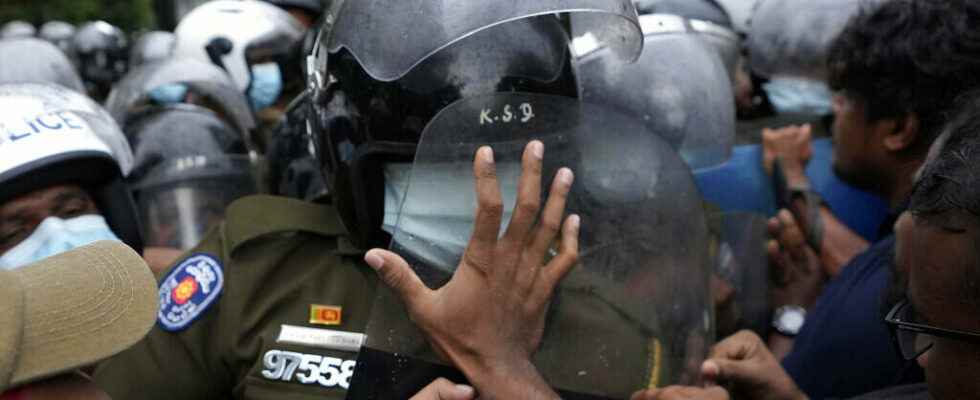The country, in default of payment, begins crucial negotiations with the International Monetary Fund (IMF) for its bailout. An economic crisis on a scale never seen since its independence in 1948 is currently shaking the country. Faced with the anger of the population, Sri Lanka, also in the midst of a political crisis, has just given itself a new government, part of the clan of President Gotabaya Rajapaksa has been dismissed.
On the streets in Colombo and throughout the country, the hour is with the discouragement. Since the beginning of the year, the price of gasoline has increased by 90%, and diesel by 138%. The population is running out of fuel, and basic commodities are depleted. Not to mention the lack of medicines in hospitals, and electricity for consumption.
For months, Sri Lanka has been sinking into the worst economic crisis it has ever experienced. This week the financial markets will remain closed. Inflation reached a record level: nearly 19%. And the national currency, the rupee, has lost a third of its value. As a result, the country has declared in default of payment.
Since 2020, the coronavirus pandemic has devastated the tourism industry, the main source of foreign currency. Foreign exchange reserves fell by 70%. Short of foreign currency, the country can no longer pay for its imports of petroleum products and foodstuffs.
The solution may come from the IMF. Discussions with the Fund begin on April 18 in Washington. The government is hoping for a $3-4 billion bailout from the IMF.
And a new government
The country is also acquiring a new government under pressure from the Sri Lankan population. Tens of thousands of people held the seat of the presidential office in Colombo, demanding that the Rajapaksa clan cede power.
The Prime Minister, the president’s elder brother, considered the leader of the clan in power, remains in power, but two members of this family lose the Ministry of Irrigation and the Ministry of Finance respectively. The new government now has 21 ministers, seven less than the previous one, while the manifest population, like last Saturdayagainst nepotism and to protest against the state of public spending.
► Read also : in Sri Lanka, the inhabitants of the island increasingly exhausted by the crisis
